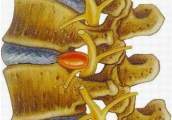Fish Depression Is Not a Joke
你家的鱼抑郁了吗?

Can a fish be depressed? This question has been floating around my head ever since I spent a night in a hotel across from an excruciatingly sad-looking Siamese fighting fish. His name was Bruce Lee, according to a sign beneath his little bowl.
鱼会抑郁吗?自从我在酒店里与对面一条看起来极其悲伤的暹罗斗鱼共处一夜之后,这个问题就一直萦绕在我的脑海中。根据他的小碗底下的标签来看,他叫布鲁斯·李(Bruce Lee)。
There we were trying to enjoy a complimentary bloody mary on the last day of our honeymoon and there was Bruce Lee, totally still, his lower fin grazing the clear faux rocks on the bottom of his home. When he did finally move, just slightly, I got the sense that he would prefer to be dead.
那是我们蜜月的最后一天,正想好好享受一杯免费赠送的血腥玛丽。布鲁斯·李就那在那里,一动不动,他的下鳍擦过那明显是人造的石块,那是他家的底座。当他终于有动静时,尽管轻微,我也能感觉到,他宁愿自己死掉。
The pleasant woman at the front desk assured me that he was well taken care of. Was I simply anthropomorphizing Bruce Lee, incorrectly assuming his lethargy was a sign of mental distress?
友善的前台小姐向我保证,他被照料得很好。难道是我简单地把布鲁斯·李人格化了,误把他的昏睡当做了精神痛苦?
When I sought answers from scientists, I assumed that they would find the question preposterous. But they did not. Not at all.
当我向科学家寻求答案时,我以为他们会觉得这个问题荒谬。但他们并不这样觉得,一点都不。
It turns out that not only can our gilled friends become depressed, but some scientists consider fish to be a promising animal model for developing anti-depressants. New research, I would learn, has been radically shifting the way that scientists think about fish cognition, building a case that pet and owner are not nearly as different as many assume.
结果证明,我们这位带鳃的朋友不仅会抑郁,而且有一些科学家认为鱼是很有前途的研发抗抑郁剂的动物模型。我得知,新的研究彻底改变了科学家对鱼的认知的理解,这建立起了一个实例,表明宠物和主人其实并没有大多数人认为的那样不同。
“The neurochemistry is so similar that it’s scary,” said Julian Pittman, a professor at the Department of Biological and Environmental Sciences at Troy University in Alabama, where he is working to develop new medications to treat depression, with the help of tiny zebrafish. We tend to think of them as simple organisms, “but there is a lot we don’t give fish credit for.”
“其中的神经化学太相像了,像得可怕。”阿拉巴马州特洛伊大学生物与环境科学系的教授朱利安·皮特曼(Julian Pittman)说。在学校里,他用小斑马鱼研发治疗抑郁症的新药物。我们通常会把它们当做简单的有机体,“但鱼类的价值远不止如此”。
Dr. Pittman likes working with fish, in part, because they are so obvious about their depression. He can reliably test the effectiveness of antidepressants with something called the “novel tank test.” A zebrafish gets dropped in a new tank. If after five minutes it is hanging out in the lower half, it’s depressed. If it’s swimming up top — its usual inclination when exploring a new environment — then it’s not.
皮特曼博士喜欢和鱼一起工作,部分原因是它们的抑郁表现得非常明显。通过一种“新鱼缸实验”,他可以有效地测试抗抑郁药物的有效性。在实验中,一条斑马鱼会被放入新鱼缸中,如果在五分钟后它仍在鱼缸低处活动,它就是抑郁的。按照它们探索新环境的通常习性,如果它向水面游动,则没有抑郁。
The severity of the depression, he says, can be measured by quantity of time at the top vs. the bottom all of which seemed to confirm my suspicions about Bruce Lee.
他说,抑郁的严重性可以用鱼在水面与在底部游动的时间长短相比较来衡量,这似乎证实了我对布鲁斯·李的怀疑。
All of this, of course, may sound fishy to any of the one in six people who has experienced clinical depression. How could a striped minnow relate to what you’ve been through? Is “depression” the right word?
当然,所有这一切,对于那些每六个人中就有一个的、经历过临床抑郁症的人来说,都听起来很可疑。一条带条纹的小鱼怎么会和自己有相同的经历?“抑郁”这个词合适吗?
While scientists have used animals, like mice, to study emotional problems for decades, the relevance of those models to human experience is sketchy at best.
尽管科学家使用如老鼠之类的动物来研究情绪问题已有数十年,但这些模型与人类感受的相关性最多也只是一种粗略的估计。
There’s the obvious issue that “We cannot ask animals how they feel,” says Dr. Diego A. Pizzagalli, the director of the Center For Depression, Anxiety and Stress Research at Harvard Medical School. Though researchers may find parallels in serotonin and dopamine fluctuations, neither fish nor rat can “capture the entire spectrum of depression as we know it,” says Dr. Pizzagalli.
哈佛医学院抑郁、焦虑与压力研究中心主任迪亚哥·A·俾萨格里(Diego A. Pizzagalli)认为,一个显然的问题是“我们无法问动物它们有什么感觉。”尽管研究人员能找到对应的血清素和多巴胺波动,但鱼类或鼠类都无法“完整涵盖我们所知的抑郁的范围”,俾萨格里博士说。
There is a heated debate in the fish research community about whether anxious or depressed is a more appropriate term.
关于“焦虑”和“抑郁”哪个术语更加适合这个问题,鱼类研究界有着激烈的讨论。
But what has convinced Dr. Pittman, and others, over the past ten years is watching the way the zebrafish lose interest in just about everything: food, toys, exploration — just like clinically depressed people.
但在过去十年中,使皮特曼博士以及其他人得到确信的,是他们看着斑马鱼如何对一切事物丧失兴趣:食物、玩具、探索——就和临床抑郁的人一样。
“You can tell,” said Culum Brown, a behavioral biologist at Macquarie University in Sydney who has published more than 100 papers on fish cognition. “Depressed people are withdrawn. The same is true of fish.”
“你看得出来,”悉尼麦考瑞大学一位在鱼类认知方面发表过100多篇论文的行为生物学家库伦·布朗(Culum Brown)说,“抑郁的人是自闭的,鱼类也是。”
The trigger for most domestic fish depression is likely lack of stimulation, said Victoria Braithwaite, a professor of fisheries and biology at Penn State University, who studies fish intelligence and fish preferences.
宾夕法尼亚州立大学研究鱼类智力和偏好的渔业和生物学教授维多利亚·布赖斯韦特(Victoria Braithwaite)认为,缺少刺激可能是触发大多数家养鱼类抑郁的原因。
Study after study shows how fish are defying aquatic stereotypes: some fish use tools, others can recognize individual faces.
不断有研究表明,鱼类的表现与对水生动物的刻板印象不同:一些鱼类会使用工具,还有一些能够分辨面孔。
“One of the things we’re finding that fish are naturally curious and seek novel things out,” said Dr. Braithwaite. In other words, your goldfish is probably bored. To help ward off depression, she urges introducing new objects to the tank or switching up the location of items.
“我们的发现之一是鱼类生性好奇,会探寻新的事物,”布赖斯韦特博士说。换句话说,你家的金鱼可能会感到无聊。为了防止沮丧,她敦促人们在鱼缸内放置新的物品,或对物品的位置进行变动。
Dr. Brown agrees, pointing to an experiment he conducted, that showed that if you leave a fish in an enriched, physically complex environment — meaning lot of plants to nibble on and cages to swim through — it decreases stress and increases brain growth.
根据他进行的一项实验所显示的,布朗博士同意,如果将鱼养在丰富复杂的物理环境中,也就是有很多可以咬的植物和可以在其中穿游的笼子,可以减轻鱼的压力,促进其大脑发育。
The problem with small tanks is not just the lack of space for exploration, said Dr. Brown, but also the water quality tends to be unstable and there may not be sufficient oxygen.
布朗博士表示,小鱼缸的问题不光是缺乏供鱼探索的空间,通常也无法保证稳定的水质,氧气可能会不足。
“A goldfish bowl for example is the worst possible situation,” he said.
“举例来说,金鱼缸就是最糟的情况。”他说。
If you own fish, you might want to consider where Dr. Brown keeps his: an extensively-landscaped six-foot tank. He recommends a “two foot tank with lots of plants and stuff” for your average betta.
如果你养了鱼,你或许可以参考布朗博士养鱼的地方:一个6英尺(约1.8米)的精心构造了景观的鱼缸。他建议,普通的斗鱼可以用一个“有许多植物和物品的2英尺(约61厘米)鱼缸”来养。
The last time a guest posted Bruce Lee to Instagram he was looking good and lively. Perhaps that new green leaf in his bowl had provided the enrichment he craved.
布鲁斯·李的照片最后一次被客人发到Instagram时,他看起来健康而有活力。或许鱼缸里新的绿叶提供了他渴望的丰富环境。
But then, my heart sank. The internet produced photos of other Bruce Lees from the same hotel in several colors — red, blue and purplish. I wondered whether the monotony would eventually drive this replacement Bruce, to hover, immobile, near his transparent rocks.
但接着,我的心又沉了一下。在网上,同一间酒店内还有许多其他不同颜色的布鲁斯·李们的照片——红的、蓝的、紫的。我在想,那种单调乏味是否最终会使这条“替代品”布鲁斯在它的透明岩石附近徘徊、停滞。












